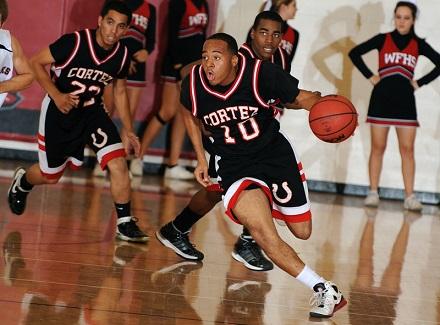

And something many may not realize is that NCAA has worked with NFHS to alter competitive calendars to draw college coaches' attention away from travel and club programs. (More on that in a moment).
NFHS says it is all in the name of refocusing parents on high school sports.
“Parents should encourage their kids to play multiple sports for their high school teams and save the money they would spend on club sports for college tuition if scholarship money does not materialize,” wrote Karissa Niehoff, executive director of the NFHS, in an online column. “Even in those situations where students are charged a modest fee to participate, school-based sports remain an incredible bargain when compared to club sports. In many cases, Division I football and basketball coaches are looking to recruit multiple-sport athletes. While there are a few sports where non-school competition is crucial, college coaches will find those athletes who excel in school-based sports.”
While Niehoff acknowledges that, according to the NCAA, 92 percent of Division I female basketball players and 89 percent of male basketball players participated in club ball, she also notes that less than one-quarter of all Division I college football players competed on a club team.
According to an article in Complex.com, programs offered by the AAU (Amateur Athletic Union), for example, are now considered preferable to varsity basketball because of the cache of being involved on a more elite level.
“AAU is killing high school basketball,” Marcus Stout told Complex. Stout, a former standout at Fordham University who briefly played overseas, now teaches basketball fundamentals to youth. “Kids don’t have any loyalty to their high school anymore. We live in a microwave society where players and coaches are focused on short-term success rather than building something bigger.” In essence, he notes, AAU programs are stacked all-star teams built to compete with other stacked all-star teams across the country.
One draw of AAU and other travel programs is the level of competition they provide. According to the experts, as more competitive players gravitate to those programs, high school teams develop a reputation as having mediocre competition.
In the wake of Niehoff’s announcement from the NFHS, however, the Illinois High School Association urged parents to use caution when signing their young athletes up for travel teams.
“We hear a lot of horror stories at our office about those kinds of things,” IHSA assistant director Matt Troha told WGLT, a public radio station owned by Illinois State University. “You also hear, ‘You have to come play on my travel team if you want to play on the high school team because I have a hand in both.’ We have rules against that, but there are gray areas and areas that are tough to enforce.”
Troha stressed that club coaches are in no position to promise either playing time on a high school team or a college athletic scholarship.
As WGLT noted, the NCAA and the NFHS altered the recruiting calendar last year to limit the time during which college coaches can watch travel teams during the summer and increase the time during which they can watch high school teams play. To that end, the IHSA hosted six team high school basketball tournaments over the summer.
Troha said that strategy paid off, citing positive responses from college coaches — some of whom found new prospects at those tournaments who had previously not been on their radar.
“That pushed back against that whole thinking that there’s only one way in that particular sport to get a scholarship,” Troha told the radio station.

